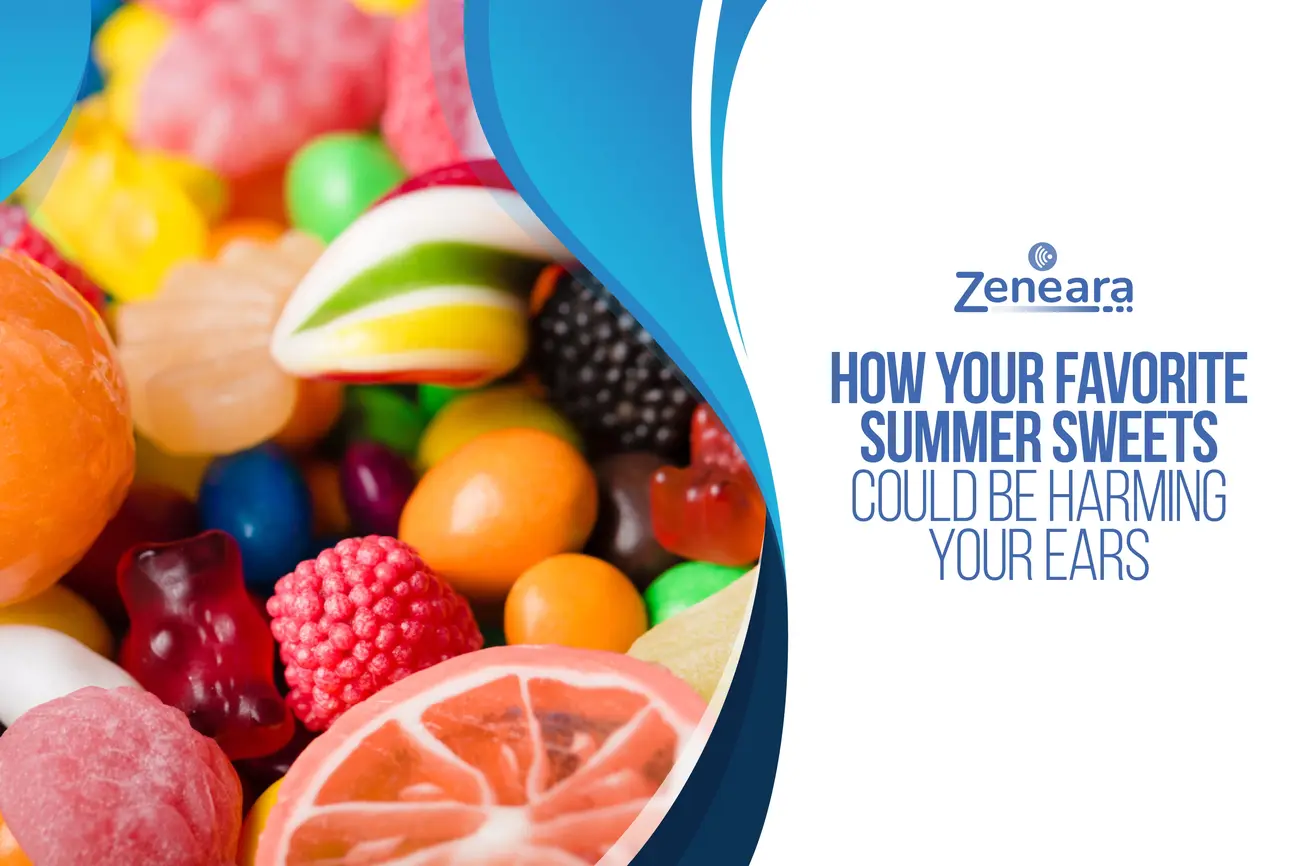Hey there, it’s James Barrett here!
As we soak up the summer sun, indulging in frosty lemonades and irresistible funnel cakes at local fairs, it’s the perfect moment to explore a topic that’s not quite as sweet—the connection between sugar consumption and tinnitus.
Have you ever noticed a ringing in your ears after a sugar-laden beach party dessert?

If you have, you’re not alone, and I’d love to hear your story!
Drop me a reply and let’s see if there’s a pattern we might be missing.
Sugar is everywhere, especially during our summer festivities.
While these sweet treats are hard to resist, they might be affecting more than just your waistline—they could also impact your ears.
Today, we will unpack the relationship between sugar and tinnitus, and I’ll share some tips on how you can manage or potentially reduce tinnitus symptoms with smart dietary choices.
Understanding the Sugar and Tinnitus Connection
It might sound surprising, but what you eat can profoundly affect your ears.
Here’s why…
Consuming high amounts of sugar can lead to significant fluctuations in your blood sugar levels.
For some individuals, these fluctuations directly impact the inner ear. The inner ear is responsible for both hearing and balance, and it relies on a delicate balance of fluids and electrolytes to function properly.
Rapid changes in blood glucose levels can disrupt this balance, potentially causing or worsening tinnitus. This ringing, buzzing, or whooshing in your ears could very well be your body signaling that it’s struggling to cope with these changes.
But the effects of sugar don’t stop there.
Consuming sugar can also trigger a systemic inflammatory response.
Inflammation is a natural process that helps the body heal and defend itself against harm.
However, when inflammation becomes chronic due to a diet consistently high in sugary foods and beverages, it can affect various body parts—including the ears.
Chronic inflammation can damage the delicate structures within the ear and exacerbate tinnitus symptoms.
Additionally, prolonged high sugar intake can lead to more severe conditions like insulin resistance and hyperinsulinemia, which themselves are risk factors for tinnitus.
Hyperinsulinemia can keep sugar levels high because sugars aren’t easily transported into your cells.
This excess sugar in the bloodstream can damage blood vessels and auditory nerves and negatively affect the oxygen supply to the inner ear, interfering with its various functions.
Over time, hyperinsulinemia may also disrupt the regulation of potassium and sodium in the inner ear fluid, leading to reduced functioning of cells that transport sound to the auditory nerve.
This decrease in cell function can directly cause or intensify the experience of tinnitus.
Short-term vs. Long-term Effects
Grabbing a soda or a slice of cake occasionally might make your ears ring temporarily, but long-term eating habits shape our health outcomes.
Regularly consuming large amounts of sugar can lead to more serious conditions like hyperinsulinemia and even diabetes, which are closely linked to chronic tinnitus.
Practical Tips to Manage Tinnitus Through Diet
Watch Your Sugar Intake: Keep an eye on hidden sugars in foods like bread and salad dressing. Remember, women should aim for no more than 25 grams of added sugar per day, and men 36 grams.
Balance Your Diet: To help stabilize your blood sugar levels, incorporate a balanced diet rich in vegetables, fruits, and whole grains.
Stay Hydrated: Sometimes, what seems like tinnitus could be just your body’s cry for hydration. Drinking plenty of water can help minimize ringing in the ears.

Understanding and responding to your body’s reactions can be your first line of defense against tinnitus. If you notice more ringing after certain foods, consider cutting back and see if it makes a difference.
As we enjoy our summer and all the treats it offers, paying attention to our sugar intake is more important than ever, especially for those dealing with tinnitus.
Remember, moderation is key!
Here’s a bonus for you…
Dive into the sweet world of healthier choices with your free Sugar Smart Swaps guide.
Inside, you’ll find practical tips for reducing sugar intake, a comprehensive list of smart sugar alternatives, and more. Elevate your health, soothe your ears, and enjoy every bite.
Grab your Sugar Smart Swaps guide now and make your first swap today!






